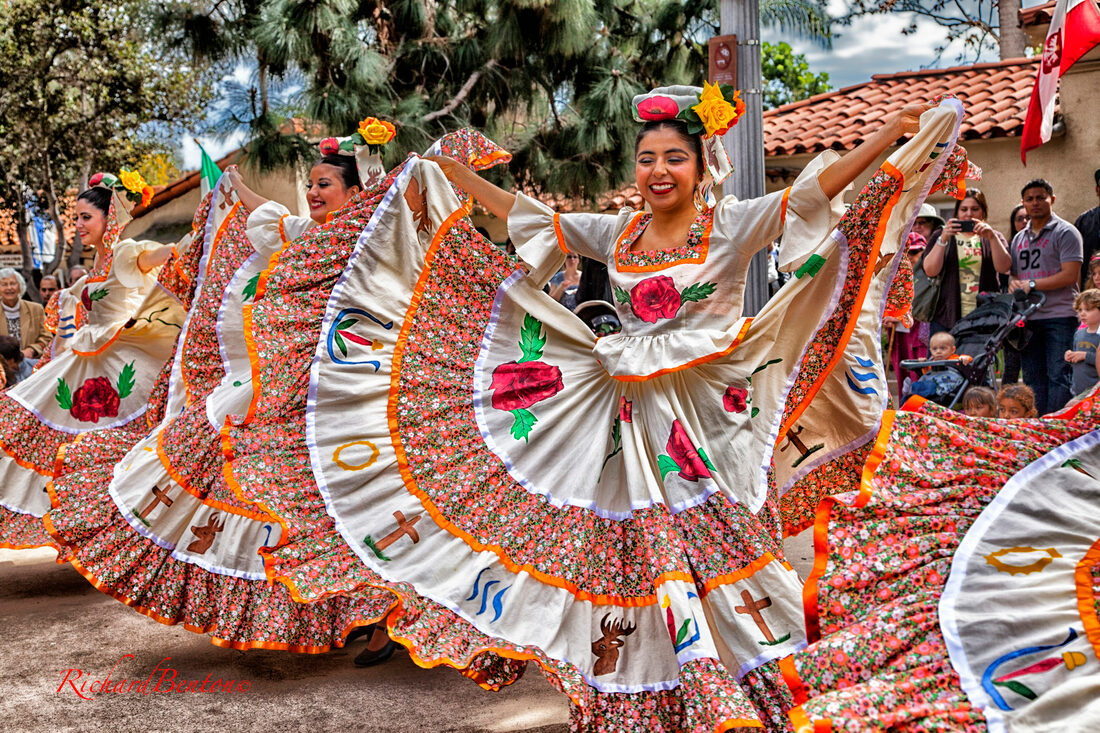"Most patriotic Americans agree that Cinco de Mayo is always a fun party for the whole family, but most of them don’t know that Cinco de Mayo is celebrated much more in the US than in Mexico, and it is not Mexican Independence Day." -- Ava Losee-Unger
Most patriotic Americans agree that Cinco de Mayo is always a fun party for the whole family, but most of them don’t know that Cinco de Mayo is celebrated much more in the US than in Mexico, and it is not Mexican Independence Day.
The date is observed to commemorate the Mexican Army's victory over the French Empire at the Battle of Puebla, on May 5, 1862, under the leadership of General Ignacio Zaragoza. In the United States, Cinco de Mayo has taken on
a significance beyond that in Mexico.
The only large-scale celebration of Cinco de Mayo in Mexico is a parade held in Puebla, south of the border, where there's a military parade and mock battle staged to commemorate the Battle of Puebla. Those in Mexico who don’t celebrate as cheerfully get small perks for the holiday. Students get school off, but most banks and stores are still open.
So why does America celebrate this holiday so much more than Mexico ever has? The question pertains to other holidays, too; such as Saint Patrick’s Day, or April Fool’s Day, which originated in Europe. America, as a country, has a long history of celebrating holidays irrelevant to them.
In 1862, at the time the Battle of Puebla took place, the United States was engaged in its Civil War. The French presence in Mexico was a strategic move: by gaining a toehold in Mexico, the French could then support the Confederate Army. The defeat of the French at the Battle of Puebla was not definitive, but it helped to keep the French away while the U.S. Union forces made advances. Thus, Cinco de Mayo can be seen as a turning point in the U.S. Civil War. Cinco de Mayo was first celebrated in the United States in Southern California in 1863 as a show of solidarity with Mexico against French rule.
Celebrations continued on a yearly basis, and by the 1930s it was seen as an opportunity to celebrate Mexican identity, promote ethnic consciousness and build community solidarity. In the 1950s and 60s Mexican-American youths appropriated the holiday and it gained a bi-national flavor, and its celebration was used as a way to build Mexican-American pride.
In the 80’s, Cinco de Mayo became commercialized on a wider scale, and soon a large portion of the US was celebrating the holiday with Mexican food, drinks, and culture. Still, though, it can be easily misinterpreted as Mexican Independence Day.
It’s easier for the US to celebrate this holiday instead of the real Mexican Independence Day for many reasons. Dieciséis de Septiembre is not an appealing name for a holiday, especially during a back-to-school month. No one is in the mood for a party when their kids are scrambling from store to store acquiring new supplies and clothes for the school year. May is a month with almost no holidays otherwise, so to commercialize Cinco de Mayo meant a fuller schedule for the year and an opportunity to party on a day most don’t know the full background of.
To find out more about the general attitude towards Cinco de Mayo I asked a couple of my classmates some questions about their experiences with the holiday.
When asked what Cinco de Mayo was all about, Charlotte Porter, an eighth grader from the Lit Arts emphasis, hesitated and responded with, “Um, it’s… the fifth day of the fifth month, um… and… I think it originated in Mexico. So, um, that’s pretty much about all I know about it.” When asked the same question, Makenna Arase, another eighth grader from the Lit Arts emphasis, answered with, “I don’t know. Isn’t it like a festival that takes place in Mexico?” Makenna also couldn’t recall what the terms “cinco” or “Mayo” meant at all and had some hesitation.
I was curious to know what these students thought about the fact that Americans celebrate Cinco de Mayo more than Mexicans themselves, and whether it was okay for them to do so. Porter was unsure about her place in the matter and whether it was alright for her to answer the question. “Oh, I… am I really in the right place to say that as a white American? I don’t know if it’s offensive, per se, but it’s doesn’t really make any sense.” Makenna, however, was sure about her answer. “I feel like it’s fine if you like, respect the traditional, like, culture and celebrations. And don’t try to be like, ‘Oh, this is like our idea, we’re trying to branch out on it.’”
Neither of them celebrated the holiday annually and didn’t have any strong opinions on it. To lighten the mood, Porter did some ASMR in the speaker of my phone, from which I will transcribe: “Hi, it’s me. Welcome to my ASMR video. Um, today we’re going to be trying to give you… [taps lightly on phone] the tiiiinglessss. [Giggles] Giggle. First we’re going to be um, we’re gonna be… [giggles].” That’s where it cut off. Thanks, Charlotte!
Cinco de Mayo celebrations are always fun, and should still continue no matter the circumstances. However, it’s important to know the background of more minor holidays like these. So go have that Cinco de Mayo party this May, just remember to educate yourself! And remember, have fun! It is a party, after all!
Citations:
https://www.tripsavvy.com/cinco-de-mayo-celebrated-in-us-1588747
https://en.m.wikipedia.org/wiki/Cinco_de_Mayo


